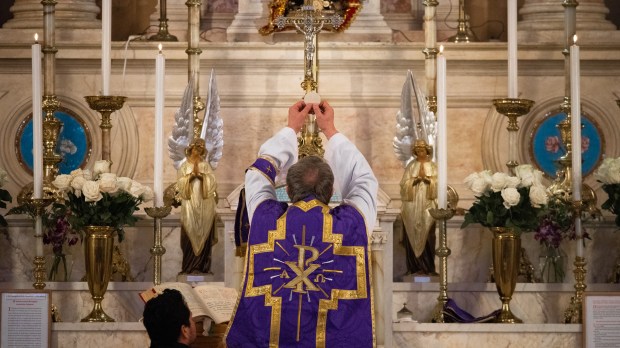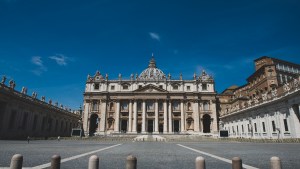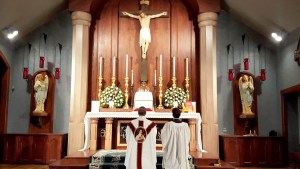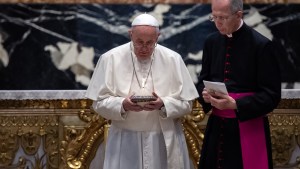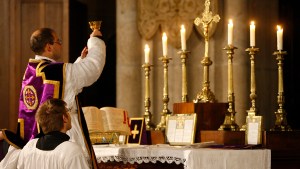The Congregation for Divine Worship and the Discipline of the Sacraments responded to 11 “dubia” (objections, or requests for clarification, made by bishops) that were submitted after the publication of Pope Francis’ motu proprio Traditionis Custodes on July 16. The congregation’s responses—published on December 18, 2021—confirm the irreversibility of the Second Vatican Council’s liturgical reform and a strict reading of the pontiff’s motu proprio that drastically reduces the possibility of celebrating in the pre-conciliar form of the rite.
The congregation’s responses were presented to Pope Francis on November 18. The pontiff has given his consent to their publication.
“Sterile polemics”
In the text accompanying the responses, Archbishop Arthur Roche, the prefect of the congregation, explains that he has chosen, with the pontiff’s consent, to give answers to the “most recurrent questions” that have been raised in recent months “from many sides and with increasing frequency.” He recalled the profound meaning of the motu proprio: “to continue the constant search for ecclesial communion.
The English archbishop said he was “sad to see how the deepest bond of unity, the sharing in the one Bread broken which is His Body offered so that all may be one (cf. Jn 17:21), becomes a cause for division.” He proceeded to denounce “sterile polemics” and the exploitation of the liturgy “by ideological visions.” He therefore urged bishops to “safeguard communion, a necessary condition […] for being able to participate at the Eucharistic table” by encouraging a rediscovery of the value of the conciliar liturgical reform through a “renewed and ongoing liturgical formation” of priests and laity alike.
No more confirmation or ordination in the Tridentine Rite
Concerning the prohibition of celebrating in the forms of the Tridentine Rite in a parish church, the congregation agreed to give dispensations to bishops in the case where no adequate place – a chapel or oratory – can accommodate the celebration. While not wanting to “marginalize” the faithful who are attached to the previous form of the rite, the congregation nevertheless requires that this impossibility be scrupulously established, that the Tridentine celebration not be included in the parish’s Mass schedule, and that the dispensation be withdrawn as soon as a suitable place is found.
This dispensation must always be confirmed by the Apostolic See – in this case the Congregation for Divine Worship and the Discipline of the Sacraments. This is not an “advisory opinion but a necessary authorization,” Rome insists. The congregation also encourages dispensations “ad tempus” – for a given time – to permit greater supervision on the part of the bishop.
The congregation closes the door on any confirmation or ordination in the form of the Tridentine rite by forbidding the use of the Pontificale Romanum – the bishops’ “missal” – which dates to before the reform. Sacraments administered by priests are not affected by this ban. The congregation calls on bishops to “accompany” those rooted in the earlier form to discover the value of celebrating in the conciliar ritual form.
No dispensation for concelebration
The congregation asks bishops not to grant dispensation to priests who do not recognize the validity of concelebration – especially during the Chrism Mass. It does, however, call on bishops to establish a “fraternal dialogue” with such priests and to offer them “the time necessary for a sincere discussion.”
The congregation allows the use of the full text of the Bible for the readings, recalling that the text must be in the regulatory vernacular translation. Lectionaries reproducing the cycles of readings of the previous rite are not permitted.
The faculty for a priest to celebrate in the Tridentine form of the Roman Rite applies only to the territory of the diocese of the bishop who has given him authorization. Any replacement of an authorized priest must be made by another priest who is also authorized.
Finally, authorized priests are not permitted to ” binate” – to celebrate twice in the same day – in both forms during the week, nor, on any occasion, to celebrate twice in the pre-conciliar form on any one day. The congregation emphasizes that deacons and instituted ministers participating in the celebration must also obtain permission from their bishop.
